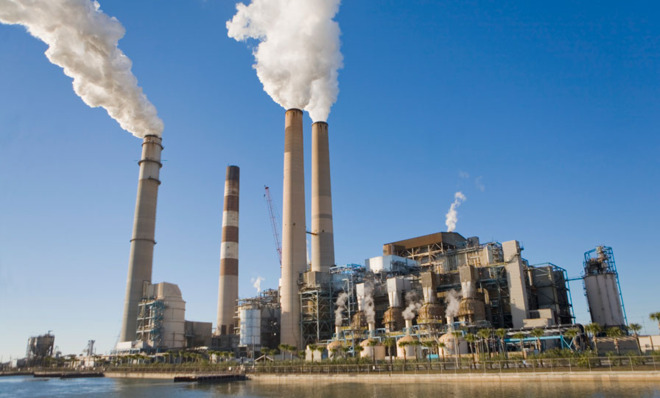Why carbon capture technology hasn't taken off
And why it still could

A free daily email with the biggest news stories of the day – and the best features from TheWeek.com
You are now subscribed
Your newsletter sign-up was successful
Carbon capture, recently considered an essential technology for curbing global greenhouse gas emissions and protecting the planet from catastrophic climate change, has lost momentum lately — and a whole lot of funding.
In 2008, governments worldwide had set aside $25 billion for developing carbon capture and storage, technologies designed to capture up to 90 percent of carbon dioxide emissions from power plants, usually of the coal-fired variety, which release the most carbon. The emissions would then be pumped deep under ground, to be stored in geologic formations.
But $8 billion has so far been cut from those budgets, says Pilita Clark at the Financial Times, while plans for 10 of the 75 plants involved in the scheme globally have been shut down. So far, not a single commercial, large-scale coal plant has one of these systems up and running, and only two are slated to go live next year — one in Canada, the other in Mississippi.
The Week
Escape your echo chamber. Get the facts behind the news, plus analysis from multiple perspectives.

Sign up for The Week's Free Newsletters
From our morning news briefing to a weekly Good News Newsletter, get the best of The Week delivered directly to your inbox.
From our morning news briefing to a weekly Good News Newsletter, get the best of The Week delivered directly to your inbox.
"The obstacle is not technical, but financial," says Clark. "[F]itting carbon capture equipment to a power station not only adds big costs to the venture, it also requires more of the electricity the plant generates, thereby making a plant more costly and less efficient than its rivals."
How much less efficient is up for debate, but reports from both the Department of Energy and MIT have estimated between 20 and 40 percent. And the Congressional Budget Office reported in 2012 that coal-fired plants that operate these carbon capture systems will at first cost as much as 75 percent more than regular coal plants.
It's easy to see why Big Coal called foul last month when Obama unveiled new standards for how much carbon new coal plants would be permitted to emit, since those standards made it virtually impossible to build a coal plant without carbon capture technologies.
Those standards make building new plants financially unviable, with one key exception, says Brad Plumer at The Washington Post:
A free daily email with the biggest news stories of the day – and the best features from TheWeek.com
The big exception, Southern Co.'s $2.4 billion Kemper County plant in Mississippi, was built with the help of a $270 million grant from the Department of Energy and a $133 million tax credit. That plant also has a special funding stream: It will sell some of the carbon it captures for use in enhanced oil recovery to defray costs. [The Washington Post]
It's a nice model, but as Plumer points out, the Kemper County plant happens to be right next to a local oil industry that can use that captured carbon — a benefit not easily replicated around the country.
It may, however, be a good model for the one place that probably needs carbon capture the most: China.
China alone burns almost half the coal in the world, more than any other country by far. It also happens to be planning to double its budget for such technologies, says Plumer, "hoping to attract some $380 million in investment over the next five years." The plan is to emulate the Kemper Country plant, and offset some of the extra cost by "using the captured carbon to recover oil from nearby wells."
If it works, it could encourage other countries to follow suit, and put the promising technology back on the map.
Carmel Lobello is the business editor at TheWeek.com. Previously, she was an editor at DeathandTaxesMag.com.
-
 Film reviews: ‘Wuthering Heights,’ ‘Good Luck, Have Fun, Don’t Die,’ and ‘Sirat’
Film reviews: ‘Wuthering Heights,’ ‘Good Luck, Have Fun, Don’t Die,’ and ‘Sirat’Feature An inconvenient love torments a would-be couple, a gonzo time traveler seeks to save humanity from AI, and a father’s desperate search goes deeply sideways
-
 Political cartoons for February 16
Political cartoons for February 16Cartoons Monday’s political cartoons include President's Day, a valentine from the Epstein files, and more
-
 Regent Hong Kong: a tranquil haven with a prime waterfront spot
Regent Hong Kong: a tranquil haven with a prime waterfront spotThe Week Recommends The trendy hotel recently underwent an extensive two-year revamp